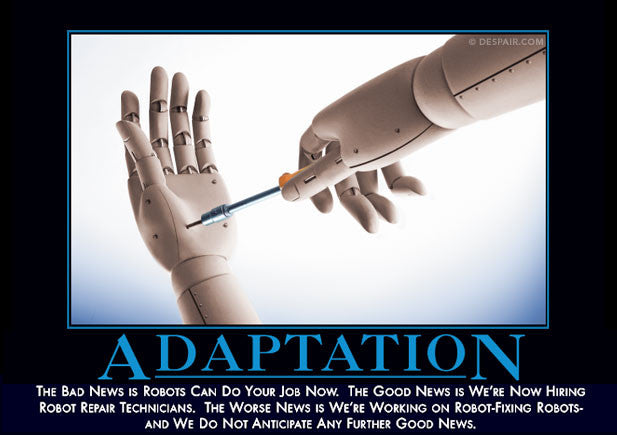I mean for every job lost due to automation isn't there another job created either building the automation or programming it or maintaining it? And these jobs would probably pay more than the jobs that were lost.
I am not sure it is a one for one comparison like that. A few of my coworkers and I were discussing
something like this the other day.
Kroger has had automated checkouts for several years, clearly eliminating some cashier slots.
Now they are introducing a new online ordering service, you submit and pay for your list of groceries,
and the store picks them out, and them and brings them to your car at your scheduled time.
For this service they charge $5.00. This sounds low, except that the person picking out the orders,
likely does several orders at a time, and the software generates a quickest path for pickup for a special cart.
Over the course of an hour, a person could fill, say 10 orders, and generate $50. in additional revenue.
If the person cost the company $14 for that hour, the company still makes $36, and so the employees,
time meets the 3 times the cost ratio. For those times when there are not enough orders, the person can stock,
and improve their knowledge of where everything is, thereby improving their primary job.

